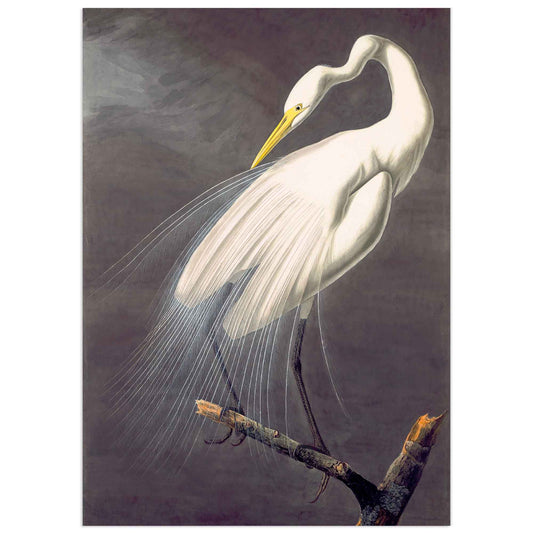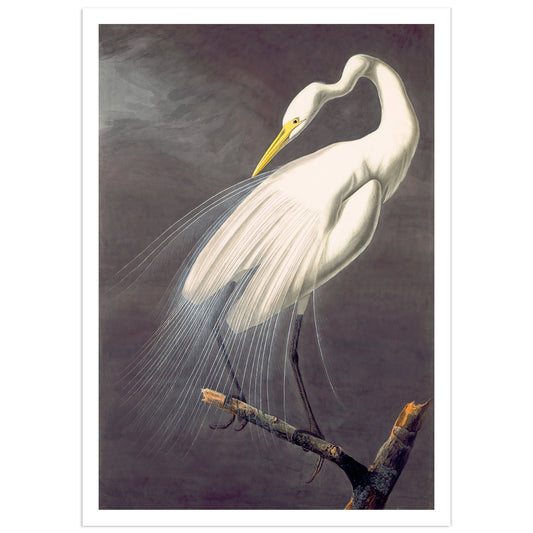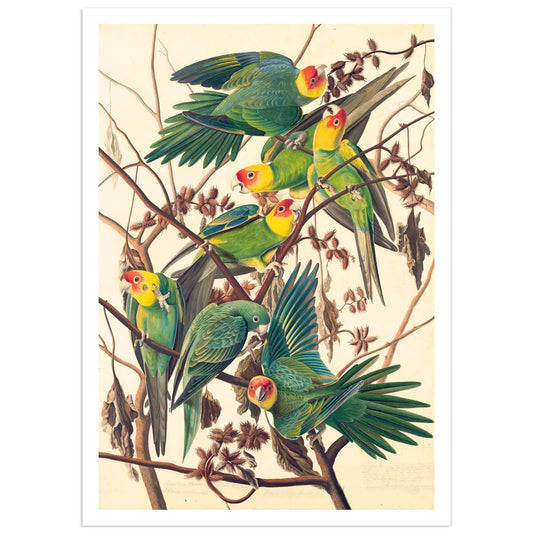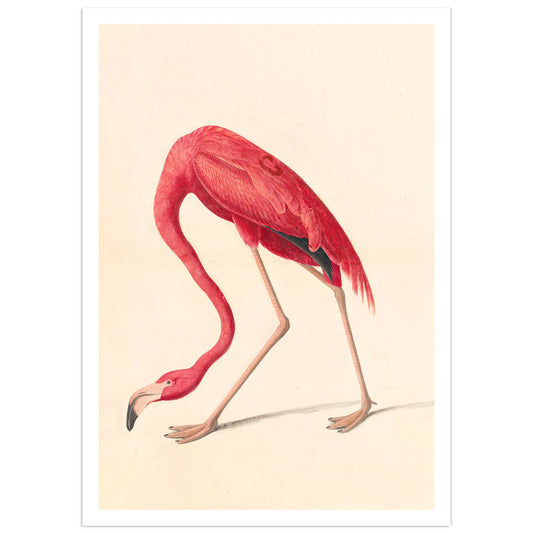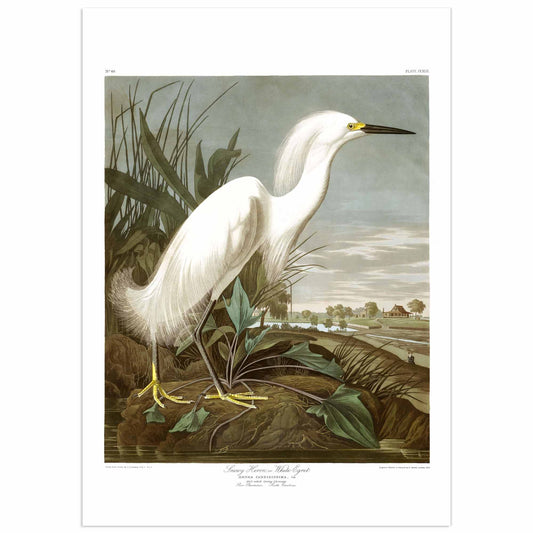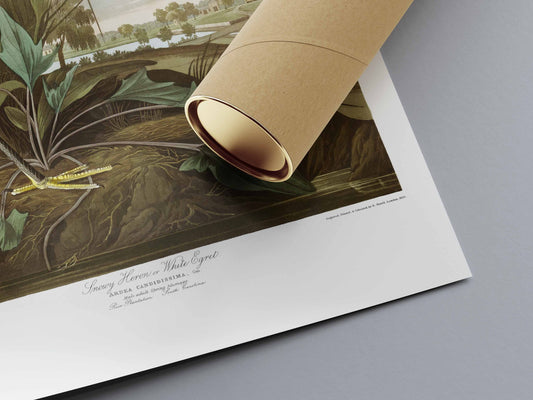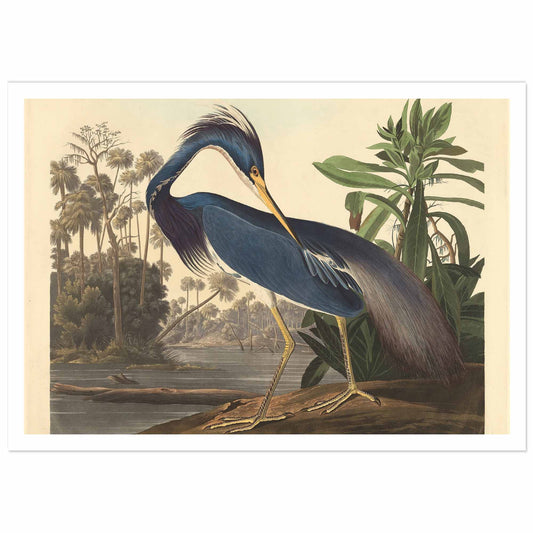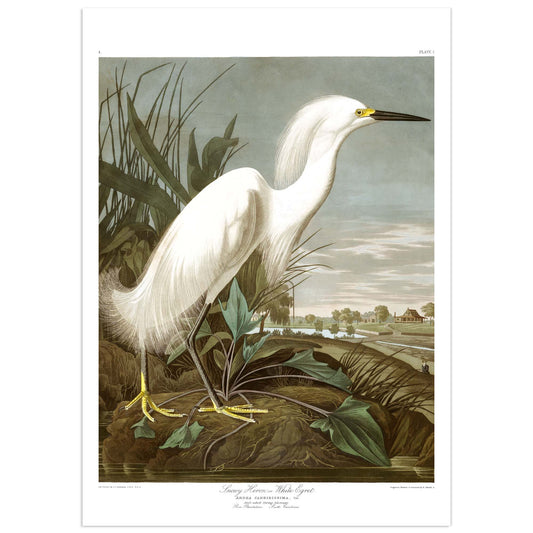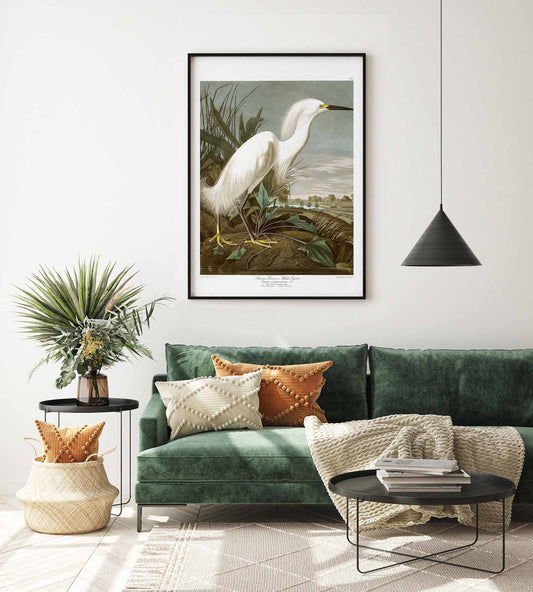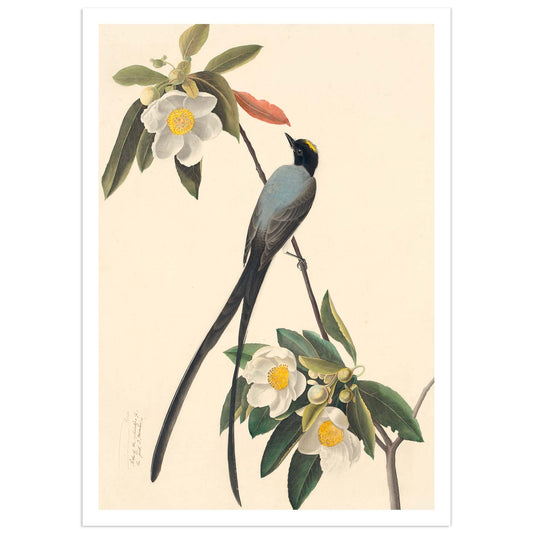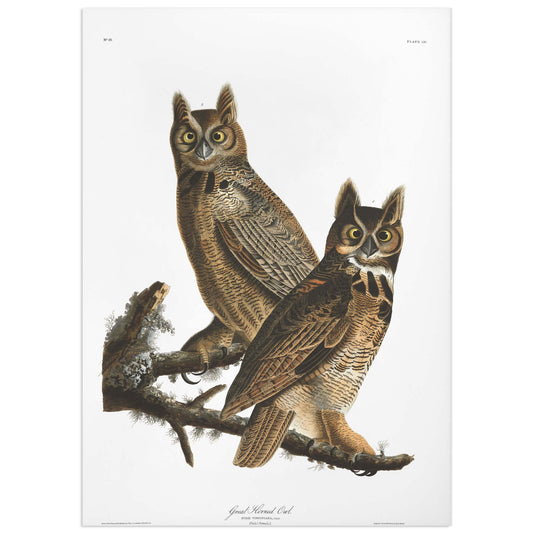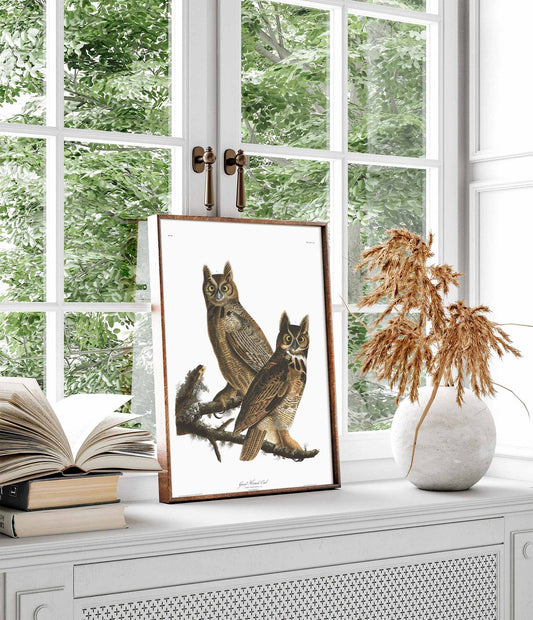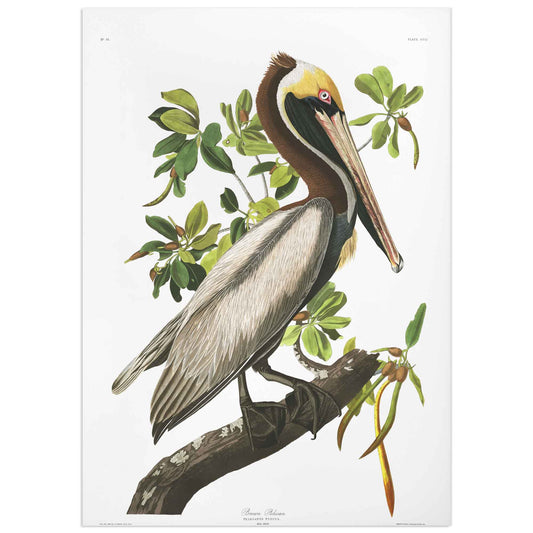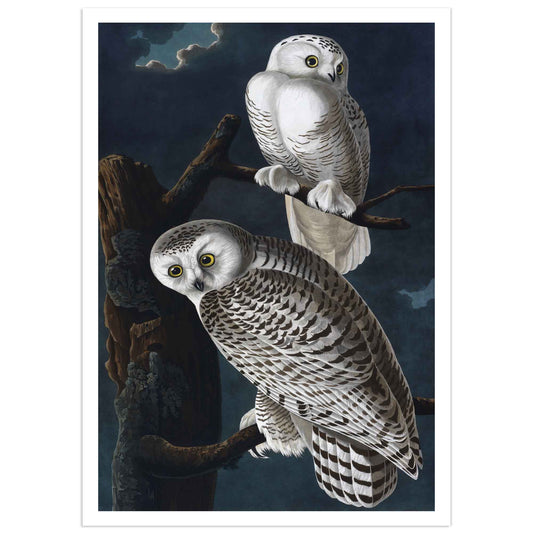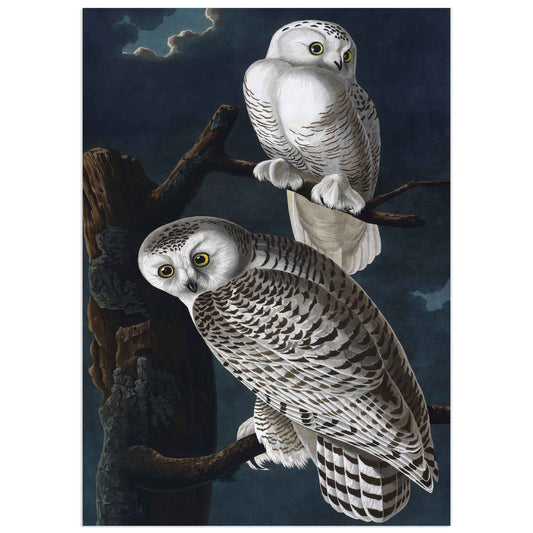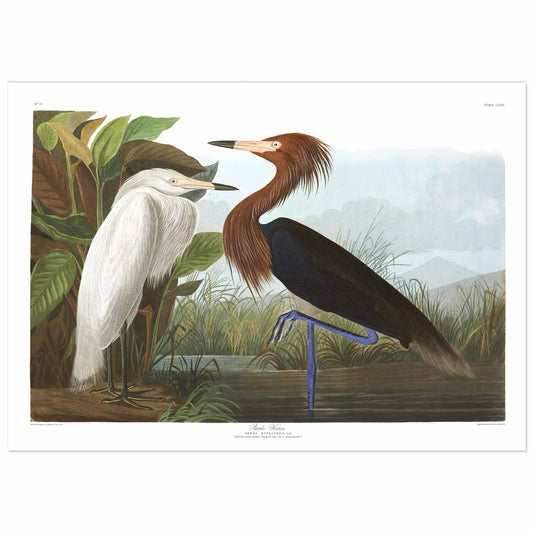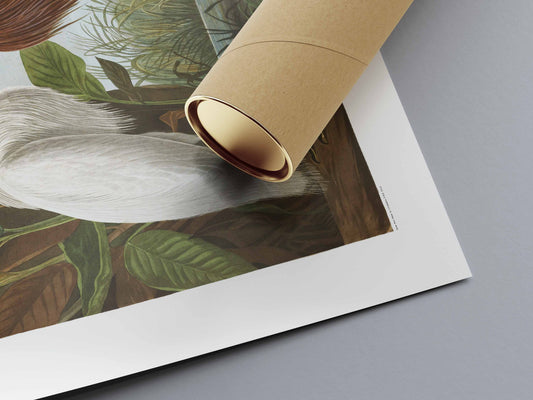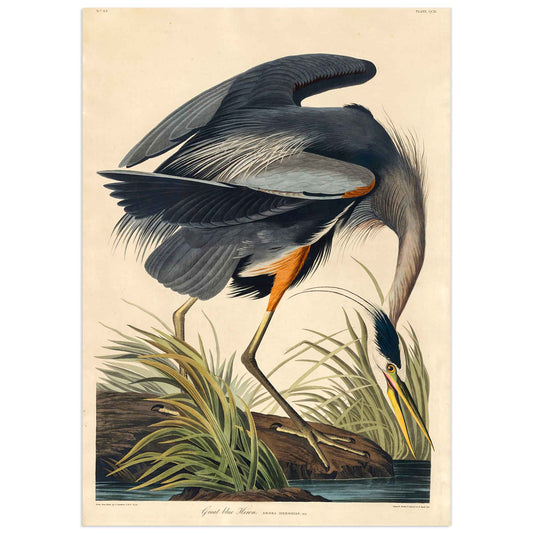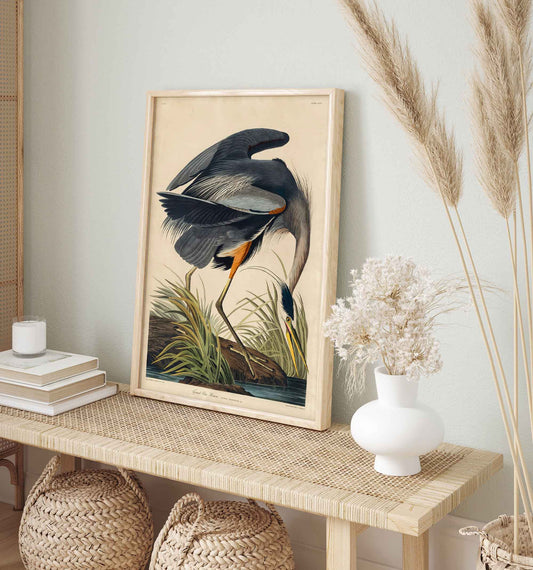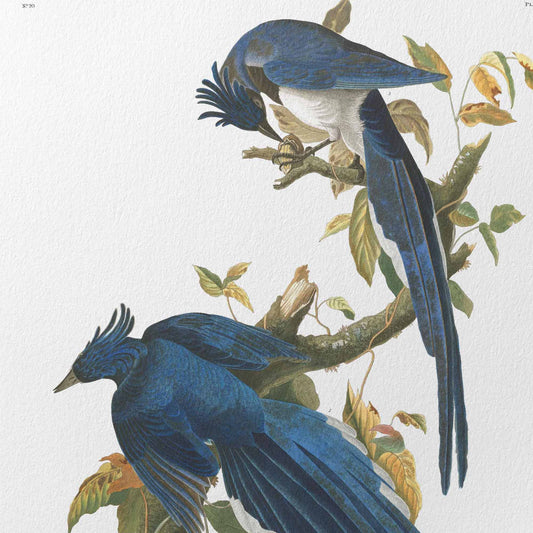Collection: John James Audubon
-
John James Audubon poster "Great White Heron" - vintage bird print
Vendor:WallangoRegular price From $32.44 USDRegular priceUnit price / per$39.00 USDSale price From $32.44 USDSale -
Carolina Parakeets, Audubon poster
Vendor:Wallango5.0 / 5.0
(6) 6 total reviews
Regular price From $32.44 USDRegular priceUnit price / per -
Flamingo Poster - John James Audubon
Vendor:Wallango5.0 / 5.0
(1) 1 total reviews
Regular price From $32.44 USDRegular priceUnit price / per -
Snowy Heron Poster from The Birds of America
Vendor:WallangoRegular price From $39.00 USDRegular priceUnit price / per -
Blue Heron, John James Audubon poster
Vendor:WallangoRegular price From $32.44 USDRegular priceUnit price / per$39.00 USDSale price From $32.44 USDSale -
Snowy Heron
Vendor:WallangoRegular price From $32.44 USDRegular priceUnit price / per$0.00 USDSale price From $32.44 USD -
Fork-Tailed Flycatcher
Vendor:WallangoRegular price From $32.44 USDRegular priceUnit price / per$0.00 USDSale price From $32.44 USD -
Great Horned Owl, from Audubon's The birds of America
Vendor:WallangoRegular price From $32.44 USDRegular priceUnit price / per$0.00 USDSale price From $32.44 USD -
Brown Pelican roosting in Red Mangrove
Vendor:Wallango5.0 / 5.0
(1) 1 total reviews
Regular price From $32.44 USDRegular priceUnit price / per$0.00 USDSale price From $32.44 USD -
John James Audubon poster "snowy owl" - vintage bird print
Vendor:WallangoRegular price From $32.44 USDRegular priceUnit price / per$39.00 USDSale price From $32.44 USDSale -
John James Audubon poster "Purple Heron"
Vendor:WallangoRegular price From $32.44 USDRegular priceUnit price / per$39.00 USDSale price From $32.44 USDSale -
John James Audubon poster - Great Blue Heron
Vendor:Wallango5.0 / 5.0
(2) 2 total reviews
Regular price From $32.44 USDRegular priceUnit price / per -
Columbia Jay Print - Audubon Birds of America Plate 96 - Fine Art Giclée on Hahnemühle Paper
Vendor:WallangoRegular price From $58.50 USDRegular priceUnit price / per
John James Audubon Poster Collection – The Birds of America
John James Audubon (1785–1851), born in Haiti, was a pioneering American ornithologist, naturalist, and painter. Passionate about wildlife from a young age, he immigrated to the United States at 18 and dedicated his life to studying and illustrating birds. His magnum opus,The Birds of America, remains one of the most important works in both ornithology and wildlife art.
About The Birds of America :
Published between 1827 and 1838,The Birds of Americafeatures 435 hand-colored engravings portraying 497 bird species. Each plate presents the birds in life-size, with scientific accuracy and artistic excellence. Audubon’s work contributed greatly to ornithological knowledge and became a visual reference that shaped natural history art for generations.
High-Definition Reproductions of Audubon's Plates
Our John James Audubon posters are scanned in ultra-high definition. The colors of our posters are faithful to the original works and available in a wide range of formats, ready to be framed!
- The Great Blue Heron (Ardea herodias)
This plate shows a great blue heron standing in the water, searching for food among the reeds. Audubon meticulously captured the elegant posture of the bird and the details of its plumage, paying tribute to its majestic stature.
- The Carolina Parakeets (Conuropsis carolinensis)
The Carolina Parakeets, now extinct, are illustrated perched on branches. Their vivid green feathers and colorful heads stand out beautifully. Audubon immortalized these birds with such vivacity that one could almost hear their joyful chattering.
- The American Flamingo (Phoenicopterus ruber)
This plate features a flamingo standing on one leg, its long neck curved downwards as if searching for food. The grace and balance of the bird are beautifully rendered, making this illustration one of the most iconic.
- Louisiana Heron (Tricolored Heron).
The Louisiana Heron, also known as the Tricolored Heron, is a striking wading bird adorned in shades of blue-gray, lavender, and white. Its slender frame and elegant posture make it a captivating sight in the wetlands of the southeastern United States. With a keen eye for fish, frogs, and crustaceans, it gracefully maneuvers through shallow waters in search of prey.
John James Audubon's depiction of the Louisiana Heron, featured in his renowned series "The Birds of America," captures the bird in exquisite detail. The plate showcases the heron's long neck and delicate plumage, illustrating its poise and beauty against a backdrop of lush vegetation. Audubon's masterful brushstrokes bring this avian subject to life, highlighting both its graceful form and the vibrant ecosystem it inhabits.
- The Great Egret (Ardea alba or Great White Heron)
Audubon captured this elegant creature in a dynamic pose, with meticulous attention to the details of the feathers and colors. This plate perfectly illustrates Audubon's ability to combine scientific accuracy and aesthetic beauty.
The Great Egret, also known as the White Heron, is an emblem of grace and elegance. These striking birds, with their sleek white plumage and slender yellow bills, are often seen wading through wetlands and coastal regions. Their long necks and legs give them an almost statuesque appearance, especially when they glide gracefully across the water. Conservation efforts have helped their populations rebound, making them a symbol of resilience in the bird world.
Over a century ago, passionate activists rescued the Great Egret from the ravenous fashion trend that saw its feathers adorn ladies' hats, a movement that sparked the founding of the original Audubon Society.
- The Brown Pelican (Pelecanus occidentalis)
The Brown Pelican is depicted in a dramatic scene, diving to catch its prey. This plate is particularly notable for its bold composition and the energy it conveys.
- The Northern Cardinal (Cardinalis cardinalis)
The Northern Cardinal is one of the most colorful and vibrant plates in the work. Audubon used bright colors to capture the beauty of this bird, and his attention to detail is evident in the rendering of the feathers and beak.
- The Peregrine Falcon (Falco peregrinus)
The Peregrine Falcon is shown in mid-flight, one of its most impressive characteristics. This plate highlights Audubon's expertise in capturing the movement and grace of birds in action.
- The American Robin (Turdus migratorius)
The American Robin is a common but nonetheless beautiful bird. Audubon managed to capture its simple yet elegant charm, with particular attention to the colors and texture of its feathers.
A monument to birds
The Birds of America is not only a major scientific contribution but also a timeless work of art. John James Audubon dedicated his life to the study and representation of birds, leaving behind a legacy that continues to inspire naturalists and artists. The plates in this work remain unparalleled examples of the union between science and art.
According to The Audubon society : "John James Audubon's Birds of America is a portal into the natural world. Printed between 1827 and 1838, it contains 435 life-size watercolors of North American birds (Havell edition), all reproduced from hand-engraved plates, and is considered to be the archetype of wildlife illustration".
Why Choose Our Audubon Posters?
- High-resolution digital reproductions of original engravings
- Accurate color correction to match vintage artwork
- Multiple formats available, all suitable for framing
- Ideal for natural history lovers, birdwatchers, and interior decorators
- Educational value with artistic and scientific accuracy
Nearly 200 years later, the Audubon prints are coming to life once again, thanks to our vibrant poster collection.
FAQ – About Our John James Audubon Poster Collection
Are these official Audubon prints?
These are professionally restored reproductions based on high-resolution scans of the original Birds of America plates, produced with respect for Audubon’s work.
What materials are used for the posters?
We print on premium-quality paper with archival inks to ensure lasting color and detail.
Are the posters educational?
Yes. They are both artistic and scientifically valuable, ideal for classrooms, nature centers, or home libraries.
Do the posters come framed?
No. All posters are sold unframed, but they fit standard frame sizes and are easy to mount.
Can I decorate with Audubon art?
Absolutely. These vintage illustrations suit a variety of interior styles, from traditional to modern naturalist.
Who was John James Audubon?
John James Audubon was a Franco-American naturalist, ornithologist, and artist best known for his detailed illustrations of North American birds. His major work, The Birds of America, is considered a 19th-century masterpiece.
Where was John James Audubon born?
He was born in 1785 in Saint-Domingue (now Haiti), then a French colony. He was raised in France before moving to the United States.
When was John James Audubon born?
John James Audubon was born on April 26, 1785.
What was John James Audubon famous for?
He is famous for his life-sized bird illustrations, based on detailed observations. His work blends scientific accuracy with artistic beauty.
How did John James Audubon die?
He died on January 27, 1851, in New York at the age of 65, likely from a neurodegenerative illness.
John James Audubon for kids
Audubon loved nature. He traveled across America to observe and draw birds. His art helps kids discover the beauty of wildlife.
John James Audubon for sale
Yes! We offer high-quality reproductions of his most iconic bird plates from The Birds of America. Printed on fine art paper with museum-grade color fidelity. Free shipping available.

